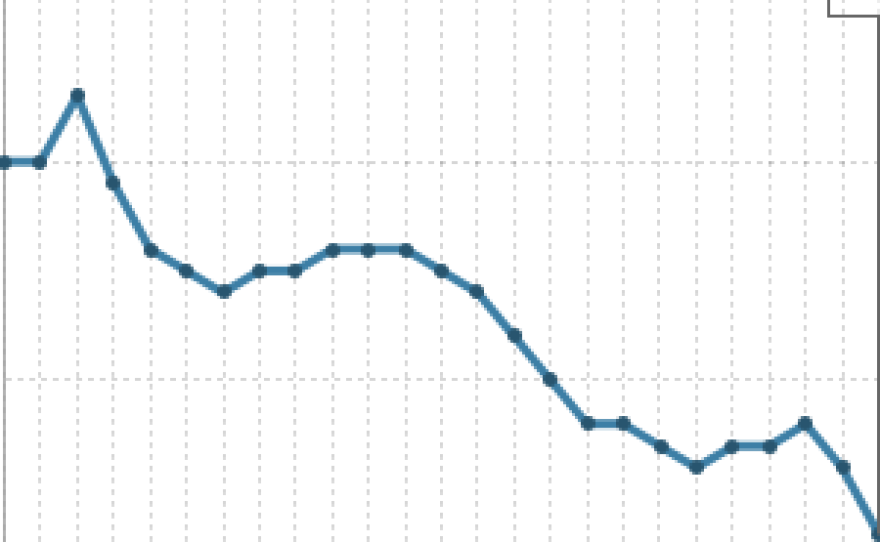The economy added 431,000 jobs in May -- the biggest monthly increase in a decade. But the numbers weren't causing much celebration because nearly all of the new positions went to temporary census workers. The nation's unemployment rate edged down to 9.7 percent.
The Labor Department reported Friday that the census hires accounted for 411,000 of the increase in nonfarm payrolls. It was the largest jump since March 2000 and was up from the 290,000 jobs added in April.
Private employers, the backbone of the economy, added just 41,000 jobs, down from 218,000 in April and the fewest since January.
"The private sector was definitely much weaker than expected," Brian Wesbury, chief economist at First Trust in Chicago, told NPR. "It was much weaker than the economy appears to be." Most economists had forecast around a half-million new jobs.
Stocks tumbled after the jobs report came out and Hungary became the latest European country to report its economy is in crisis. The Dow Jones industrials closed down 324 points Friday at 9,931, a drop of more than 3 percent. The Standard & Poor's 500 index fell 38 points to 1,065, while the Nasdaq composite index dropped 84 points to 2,219.
The unemployment rate, which is derived from a separate survey than the payroll figures, fell to 9.7 percent from 9.9 percent -- largely because 322,000 people left the labor force for various reasons. The Labor figures showed drops in both the number of people saying they were employed and the number reporting they were out of work.
A total of 15 million people were out of work in May.
Counting people who have given up looking for work and part-timers who would prefer to be working full time, the so-called underemployment rate fell to 16.6 percent in May from 17.1 percent in April.
Although the private-sector made anemic additions to payrolls in most sectors, construction lost 35,000 jobs, erasing much of the positive ground in recent months.
"Whether it's private-sector housing or commercial real-estate … we still haven't turned the corner when it comes to housing and construction," said Hugh Johnson of Johnson Illington Advisors.
By contrast, the manufacturing sector gained 29,000 jobs, mining added 10,000 and health care was up by 8,000 new positions.
Of the overall report, Johnson told NPR: "This isn't going to make anyone really excited or happy, but nonetheless we are expanding."
The White House put a positive spin on the new numbers, with President Obama saying, "This report is a sign that our economy is getting stronger by the day."

Chief economic adviser Christina Romer pointed to the nearly 500,000 private-sector jobs added since December.
Employees were also working slightly longer hours, an indication that employers are still anxious about the recovery's sustainability.
"Rather than hiring new employees, they are just expanding the workweek for their existing ones," Wesbury said, explaining the 0.3 hour increase. "That doesn't sound like a lot, but when you're talking about 140 million employees, it's the equivalent of 350,000 full-time people."
But Peter Morici, an economist at the University of Maryland, warned that the economy has a long way to go before unemployment is back around acceptable levels. "The economy must add more than 13 million mostly private sector jobs to bring unemployment down to 6 percent by the end of 2013," he said.
"Businesses need customers and capital to invest in new facilities and jobs," he said, noting weak demand and continuing "huge problems" at regional banks, as well as imports of oil and a massive trade-deficit with China.
"Without addressing oil and China, creating enough new jobs is daunting," Morici said.
Material from The Associated Press was used in this report.
Copyright 2022 NPR. To see more, visit https://www.npr.org. 9(MDAzMjM2NDYzMDEyMzc1Njk5NjAxNzY3OQ001))






